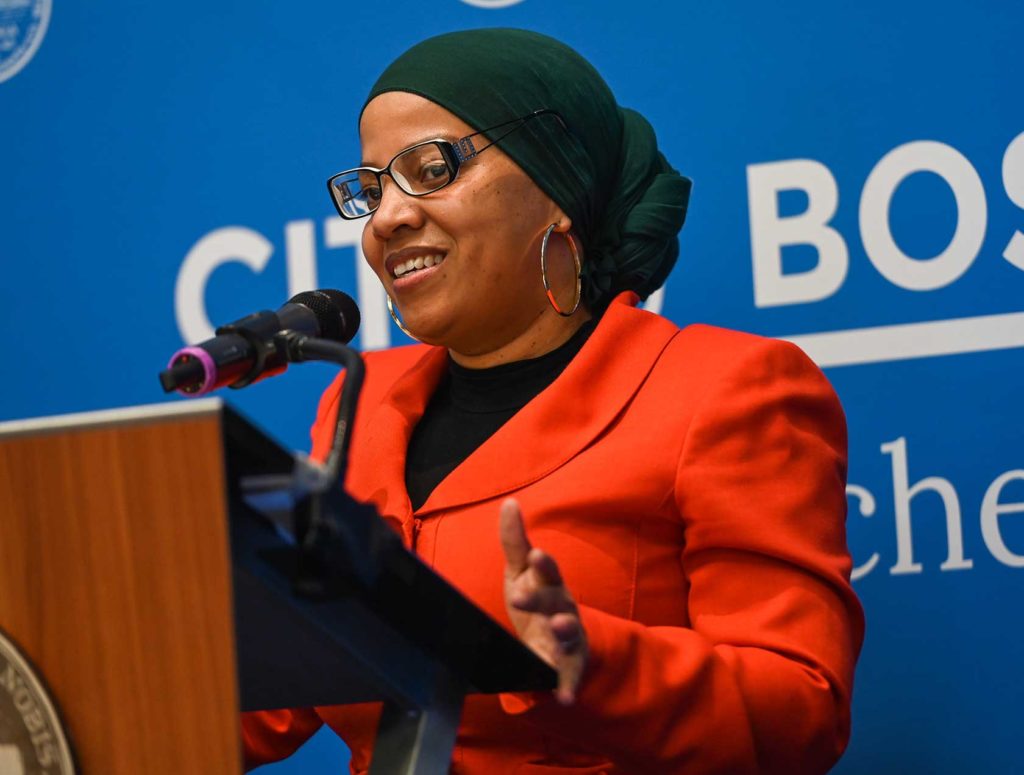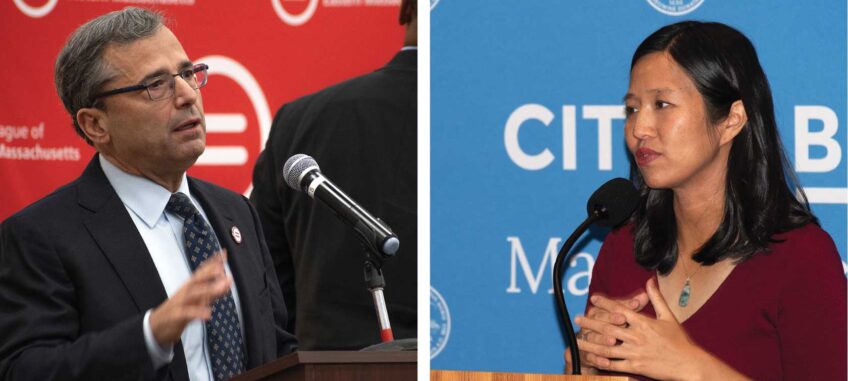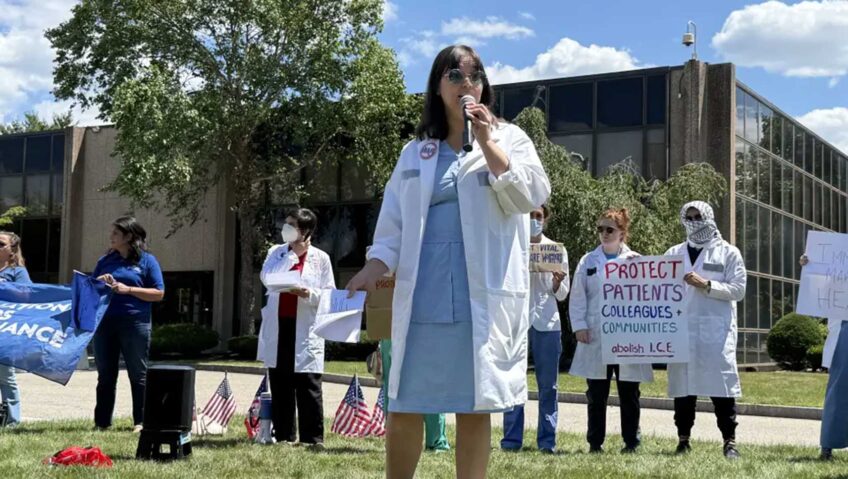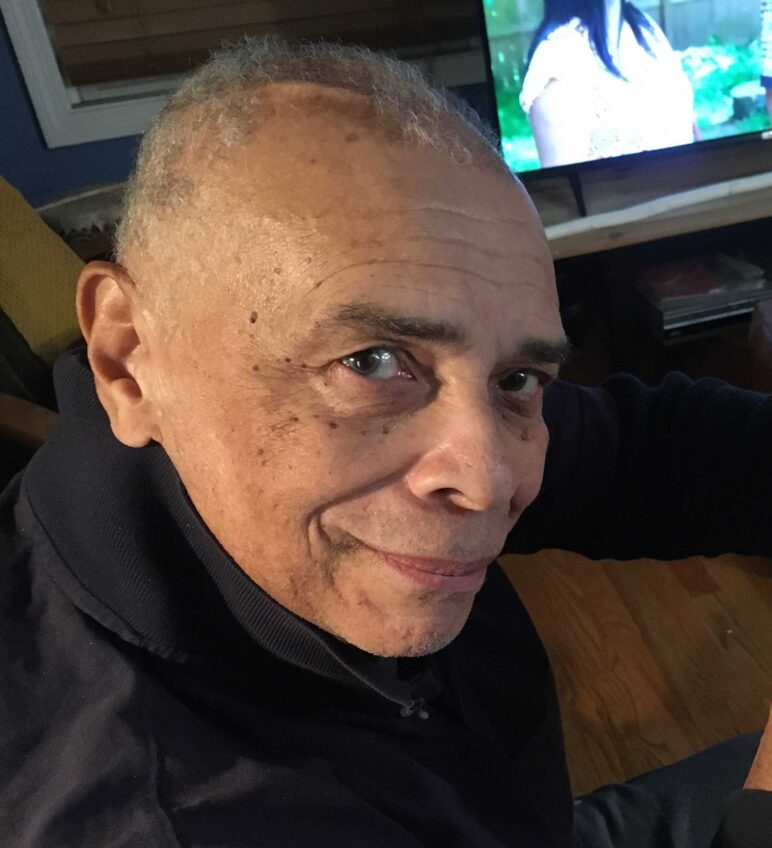
Last Wednesday, Mayor Michelle Wu unveiled her proposed budget of nearly $4 billion, alongside plans to spend the remainder of the $350 million in one-time federal COVID relief dollars. The spending plan includes increases in funding for affordable housing, green initiatives and several of Wu’s newly-created offices aimed at economic development for the city’s disenfranchised communities.
“Our goal was not only to put forth an operating budget and capital budget and schools budget that are fiscally sound and represent the delivery and continuance of city services, but to really tie in the federal recovery dollars so that we can do something special and transformative in this moment,” Wu told those gathered at the annual budget breakfast held at City Hall.
Wu’s 2023 operating Budget of $3.99 billion shows new year-over-year spending growth of $216 million, or 5.7 percent —an increase not out of line with previous years, but significant in conjunction with the unprecedented American Rescue Plan Act (ARPA) spending.
The mayor said the extra funds will “accelerate and exponentially amplify” her big spending areas.
Notably, one of those areas is housing — Wu’s plan allocates $380 million toward housing affordability, combining funds from the operating budget, the capital budget and federal recovery funds. Her plan would build and acquire new affordable units, invest in affordable homeownership, and fund housing stability services and an expanded voucher program.
“In my history with the city, and probably in all of City Hall’s history, there has never been this kind of investment in housing issues. So I have never been so excited about a budget before,” Sheila Dillon, the city’s chief of housing, said Wednesday.
Of the $350 million in ARPA funding, $206 million is allocated to housing stability, eclipsing the second highest allocation, $34 million for “economic opportunity and inclusion,” which includes investments in Main Street business districts and the expansion of tuition-free community college and workforce training programs.
The rest of the ARPA funding as part of Wu’s plan is slated for green infrastructure, arts and culture investments, coronavirus response, substance use programs, early education and childcare, and language equity evaluations.
Also notable is the relative lack of movement in the Boston Police Department’s portion of the city’s operating budget. The BPD budget is decreasing slightly, from $400 million to just over $395 million — a figure that city officials say is impacted by impending retirements paired with lower wages to incoming cadets.
Public safety funding has continued to be a controversial line item, as advocates for criminal justice reform continue to call for a slashing of the BPD budget. Several activists told news media that they were disappointed in the mayor’s lack of substantial movement on police funding, given her past vocal support for defunding as a city councilor.
In 2020, then-councilor Wu called for a 10% cut to BPD’s budget. When questioned by reporters why her cuts amount to around a 1% decrease in funding, the mayor said that she is looking to fund the department based on its services that it provides to the community and that it is “arbitrary to pick a number.”
Also included in the proposed operating budget are funds for collective bargaining to allow the city to settle outstanding contracts, new funds for a citywide mental health initiative, and funding for the mayor’s newly created offices such as the Office of Black Male Advancement and the Office of LGBTQ+ Advancement. Part of the money for these new offices comes out of budgets for other programs like the existing Office for Equity and Office for Women’s Advancement, which will see their bottom lines trimmed by $2.9 million and $400,000, respectively.
An additional $7 million has been added to the Public Health Commission budget to fund mental health initiatives across the city. Included as part of that effort are a coordinated crisis response program, specialized supports for older adults and “pathways for greater representation of Boston residents and people of color in public safety jobs.”
The Fiscal Year 2023 budget season marks the first time that the budget process will be collaborative — with the City Council able to make amendments instead of approving or vetoing whole mayoral plans. In line with this updated process, the budget now heads to the council, which will hold hearings to discuss changes before the budget is finalized in June.
“This has really already been a process that’s been incredibly inspiring, connecting with residents all across our city, and I look forward to keeping that energy up as we go through and really make sure that we’re making good on this moment and this window of opportunity that we have together,” the mayor said Wednesday.







